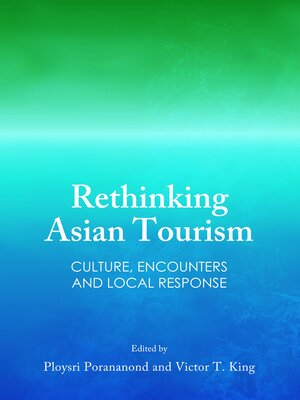
Sign up to save your library
With an OverDrive account, you can save your favorite libraries for at-a-glance information about availability. Find out more about OverDrive accounts.
Find this title in Libby, the library reading app by OverDrive.



Search for a digital library with this title
Title found at these libraries:
| Library Name | Distance |
|---|---|
| Loading... |
Rethinking Asian Tourism addresses some of the latest developments in on-going tourism research in Southeast Asia and the wider Asia region (encompassing, in geographical terms, Thailand, Vietnam, Indonesia, the Philippines, Malaysia, Hong Kong, Japan, and Korea). It examines many of the emerging, as well as established, themes and issues in Asian tourism and promotes the development of critical scholarship within Asia to overcome Anglo-Western ethnocentrism in tourism studies of the region. There is some attention to such familiar concepts as authenticity, commoditisation, culture, heritage, and hosts and guests, but more especially to the diversification of phenomena which traditionally would not have been included within the parameters of tourism studies: retirees and long-stays, gastronomy, family-based leisure, popular culture, and local branding. Above all, the book addresses and develops a conceptual understanding from a multidisciplinary perspective of the character, experiences, encounters, perceptions and motivations of local, national and intra-regional tourism rather than basing concepts, perspectives, emphases and analyses on Western-Asian interactions and on transformations in the West. In this respect it encourages a shift in emphasis towards 'Asianising' our understanding of Asian tourism. This is one of the first volumes on Asian tourism written primarily by Asians and, as such, provides them with the opportunity to express their concerns, interests and priorities, rather than depending on the analyses and interpretations of those from outside the region. It also enables a deconstruction of the field of tourism studies, acknowledging that it is an open-ended, shifting, fluid and complex category of encounters and events generated by the processes of physical mobility.







